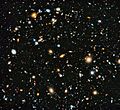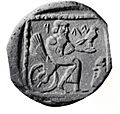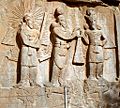Deity facts for kids
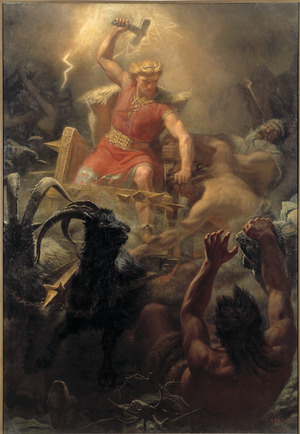
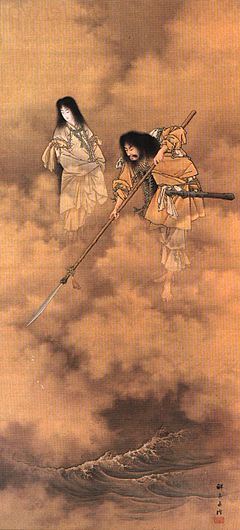
A deity is thought to be a powerful spirit that controls events and the nature of things. Deities are also called gods. A female god is often called a goddess. The adjective of deity is ‘divine’. This word comes from the Latin deus (female: dea).
Different religions believe in different deities. Since there are many religions in the world there are many different ideas about how many deities there are, what they are, and what they can do. Followers of many ancient religions and some modern religions believe in many deities, which is called polytheism.
The two largest religions on earth, Christianity and Islam, believe in only one God, which is called monotheism. Deism is the belief that a deity exists, but that the deity does not very often change or never changes things in the universe. Pantheism is the belief that the universe is the deity, while atheism is the belief that there are no deities.
In most religions, believers think deities are immortal (cannot die), and have powers far beyond human powers.
Examples
Some of the deities of different religions are:
- From the Ancient Greek religion: Zeus, Apollo, Athena, Ares, Aphrodite, Poseidon, Hades, Thanatos, Dionysus, Hera, Artemis, Hephaestus, Hermes, nymph
- From the Ancient Norse religion: Thor, Odin
- From the Ancient Roman religion: Jupiter, Mars, Venus
- From the Ancient Egyptian religion: Isis, Osiris, Horus, Thoth, Ra, Hathor
- From Christianity: Jesus, Yahweh, the Holy Spirit (Considered to Christians as the three parts of one God)
- From Judaism: Hashem
- From Hinduism: Brahma, Vishnu, Shiva, Krishna, Durga, Ganesha and many more.
- From Buddhism: Deva
- From Islam: Allah
- From Shinto called kami: Amaterasu the Sun goddess, Inari the Fox god, Izanagi the first human, Ryuujin the Sea god, Shinigami the death gods, Susanoo the Storm god
Images for kids
-
Pantheists believe that the universe itself and everything in it forms a single, all-encompassing deity.
-
A 4th century BC drachm (quarter shekel) coin from the Persian province of Yehud Medinata, possibly representing Yahweh seated on a winged and wheeled sun-throne.
-
The Kirkby Stephen Stone, discovered in Kirkby Stephen, England, depicts a bound figure, who some have theorized may be the Germanic god Loki.
-
4th-century Roman sarcophagus depicting the creation of man by Prometheus, with major Roman deities Jupiter, Neptune, Mercury, Juno, Apollo, Vulcan watching.
-
Holy Trinity (1756–1758) by Szymon Czechowicz, showing God the Father, God the Son, and the Holy Spirit, all of whom are revered in Christianity as a single deity.
See also
 In Spanish: Deidad para niños
In Spanish: Deidad para niños


